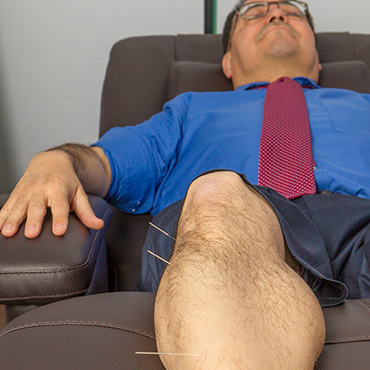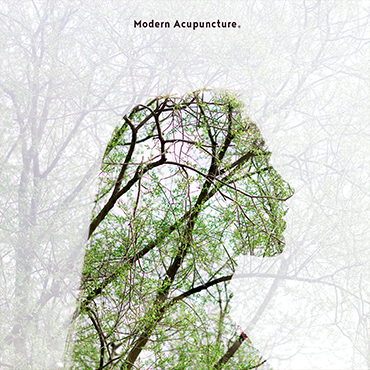Wake Up! Those with Insomnia Caused by Chronic Pain Improved Sleep Quality with Modern Acupuncture Treatments

People who suffer from chronic pain know firsthand how difficult it can be to get a good night's sleep.
The research shows that approximately 50% to 80% of patients with chronic pain experience ongoing sleep difficulties, most exhibiting insomnia symptoms.
The National Sleep Foundation suggests that two out of three people with chronic pain have trouble sleeping.
For those living with chronic pain, prioritizing sleep may be a key component in the path to recovery.
The Pain and Insomnia Connection
There is a clear connection between pain and insomnia. Pain typically occurs when nerves are stimulated to an intense degree. As a result, the brain is activated, and most chronic pain patients are bound to stay awake.
Sleep and pain appear to have a bidirectional relationship. For instance, many patients report their painful symptoms lessened after a better night's sleep.
Common Sleep Disturbances with Chronic Pain
Chronic pain can affect sleep differently and depends on the nature of the pain. Some conditions may flare up at night or be provoked by certain sleeping positions. In addition to shorter overall sleep time, chronic pain can also cause frequent nighttime waking.
Many common pain conditions that effect millions of patients cause insomnia including:
- Back pain
- Arthritis
- Fibromyalgia
- Cancer pain
Apart from the pain itself, some people with chronic pain also experience one or more sleep disorders, such as sleep apnea or restless leg syndrome.
Medication for pain also may have side effects that interfere with sleep.
The first step to countering insomnia is to reduce the pain. This means treating the underlying condition that causes pain. Acupuncture is an effective solution for both chronic pain and improving sleep quality. Acupuncture has been safely and effectively improving sleep quality for thousands of years.
For pain relief, modern research shows that Acupuncture works in the following ways:
Relieves pain and alleviates discomfort by relaxing muscles and stimulating the release of endorphins, natural pain-relieving chemicals, and serotonin to promote feelings of wellbeing.
Decreases inflammation by increasing the production of hormones that helps control inflammation. By reducing inflammation, Acupuncture helps tissues repair more quickly for long-term relief.
The benefits of Acupuncture also extend to sleep quality. In fact, one of the main reasons that patients visit our clinics is to reduce stress and improve overall sleep quality. The benefits of Acupuncture are wide-ranging and focus on whole body wellness.
“I visited Modern Acupuncture last week to see if getting acupuncture would help with my insomnia and let me just say…this place is an entire VIBE! So clean and serene and the team knows their stuff! I’ve never had it before, and I was made super comfortable and informed during the entire process! Oh, and I fall asleep while there!! I will 1000% be going back very soon and would recommend to anyone!” – Shawanna (AZ)
“Awesome service! Being treated for allergies and difficulty sleeping. It is making a huge difference, have been feeling so much better.” – Miriam (FL)
At Modern Acupuncture, many patients first visit for issues linked to pain, stress, and sleep issues. Looking at the body holistically, our Licensed Acupuncturists acknowledge the impact of pain on poor sleep quality and overall health.
Visit your local Modern Acupuncture clinic to experience a better night’s sleep and work with our Licensed Acupuncturists to improve this essential health habit for your long-term health.
Acupuncture Relieves Stress and Pain
Modern Acupuncture® is a natural stress and pain relief solution and the leading provider of Acupuncture in the U.S. The most studied theories show that Acupuncture stimulates the body to release naturally produced “feel good” endorphins and stimulate the parasympathetic or “rest and digest” response in our body, alleviating symptoms associated with stress.
[Back to main news page]



